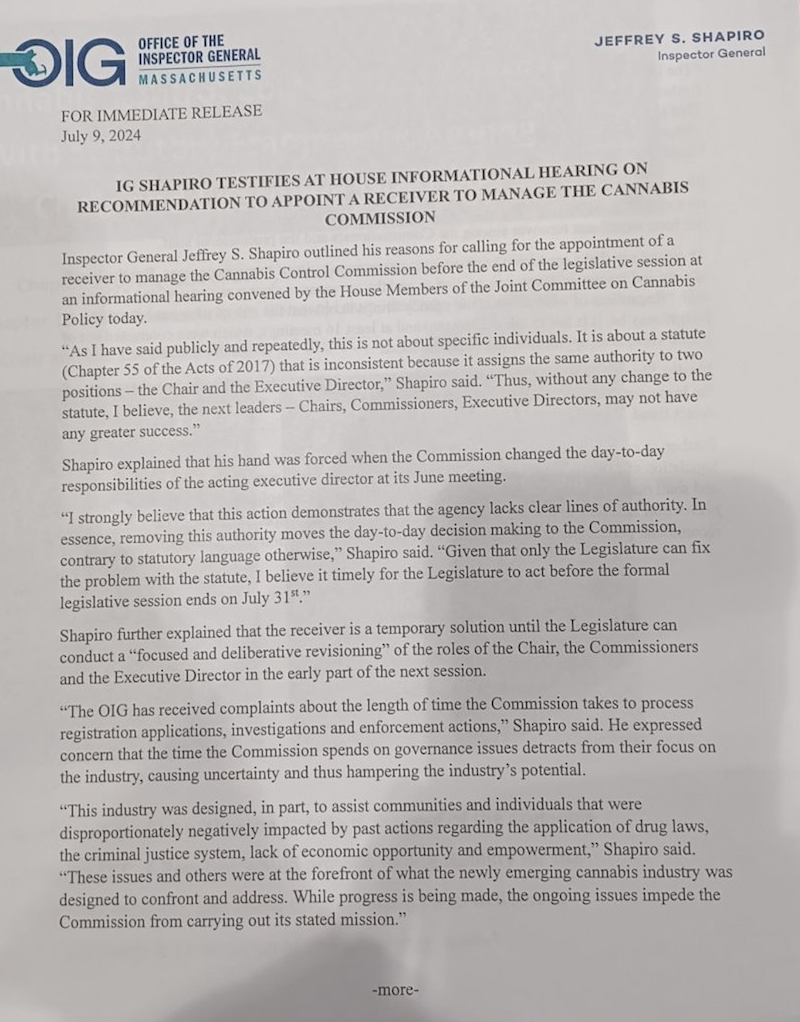It’ll take a while but the business plan to get Curaleaf products available via the NHS starts here…and the front man is now former Conservative MP George Freeman
See the press release dated 28 May (scroll down) about his involvement and and what a surprise
Positioned at the heart of the life sciences sector, the Cannabinoid Research & Development Group UK is a new research strategy group led by academics, researchers, clinicians, patients and industry.
The group will propel scientific research and development of pharmaceutical cannabinoid-related products in the UK.
Our ambition is to develop and implement a comprehensive strategy to transform the UK into the global leader in cannabinoid research and medicine development.
London, Tuesday 28 May 2024 — Two of the leading figures in the UK’s medical science field have today announced the creation of a new research strategy group led by academics, researchers, clinicians, patients and industry. The group will develop and execute a strategy to establish the UK as a global leader in R&D in cannabinoid science.
George Freeman MP – the UK’s first Minister for Life Science and former Minister of State for Science & Technology – and Professor Trevor Jones, the former Head of R&D at Wellcome PLC and Director General of The Association of the British Pharmaceutical Industry (ABPI), have joined forces with a focus on building a robust ecosystem – integrating universities, research institutions, investors, businesses, and the NHS, to advance the understanding of cannabis and its derivatives.
The UK Cannabinoid Research and Development Group (CRDG) will produce the country’s first comprehensive strategy for cannabinoid research and development filling a gap that has existed since cannabis was rescheduled for medical use in 2018.
At present, only three cannabis-based medicines have been approved for prescription in the UK. Two of these are produced by a company of UK origin. The vast majority of cannabis-based products for medical use (CBPMs) prescribed in the UK are unlicensed via the ‘specials’ route, and administered by private sector clinics.
This new task force is initially supported by seven industry partners and will be consulting on its plans in the coming months with a view to producing its first strategy paper to the new government in July. The group will be formally constituted this summer.
Marking the launch, George Freeman, MP said:
“The success of GW Pharmaceuticals, an outstanding UK Life Science success story, has created a huge global interest in the cannabinoid pathway as a rich seam of potential new therapeutics in neuroscience. There is now a broad acknowledgement across Government, that since the rescheduling of cannabinoid medicines by the Government in 2018 to allow patients suffering from epilepsy and other untreated conditions for which cannabinoid medicines are the only relief, not enough has been done to advance clinical understanding of cannabinoids or convert UK strengths in cannabinoid research to industrial and commercial advantage.
President Biden’s recent announcement to reschedule cannabis in the US which is likely to stimulate R&D investment means that we cannot waste any further time to exploit the opportunities that exist here in the UK.
We must build upon our unique foundations of world class research universities, innovative entrepreneurship, and the NHS to make good on the promise of the summer of 2018.
After a career in biotechnology investing and as Minister for Life Science, Agritech and UK research and innovation it is clear that we have a huge industrial opportunity in this sector which we cannot afford not to support.“
Professor Trevor Jones:
“Data from observational studies and real world evidence (RWE) generated from some private clinics provide valuable insights into medicinal cannabis in clinical settings, but these study designs have obvious limitations and highlight the need for well-designed, randomised controlled trials to establish efficacy and safety more definitively. The CRDG will focus relentlessly on creating an environment for vital advanced clinical trials and scientific research into cannabinoids to take place here in the UK.”
Notes
Industry partners
Ananda Developments Plc
Artelo Biosciences, Inc
Curaleaf International
Kingdom Therapeutics Ltd
Oxford Cannabinoid Technologies Holdings Plc
NW PharmaTech Ltd
Phytome Life Sciences Ltd
Taskforce website
Visit CRDG.uk for more information.
Contact
Steve Moore – 07870 515025


 Cannabis News1 year ago
Cannabis News1 year ago
 One-Hit Wonders1 year ago
One-Hit Wonders1 year ago
 Cannabis 1011 year ago
Cannabis 1011 year ago
 drug testing7 months ago
drug testing7 months ago
 Marijuana Business Daily1 year ago
Marijuana Business Daily1 year ago
 Education1 year ago
Education1 year ago
 Cannabis1 year ago
Cannabis1 year ago
 Education1 year ago
Education1 year ago



















